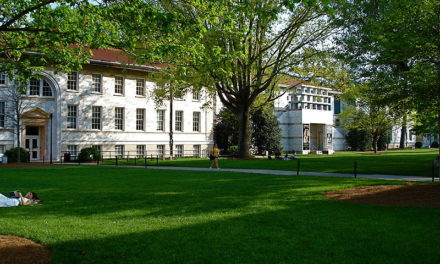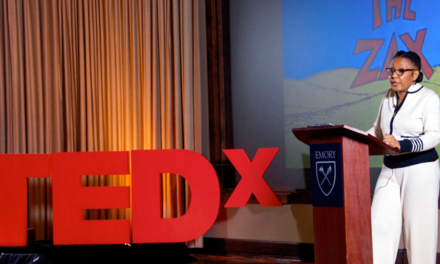Tenure and promotion standards for Emory College professors will be raised next year, effective Aug. 1, 2017, according to a Nov. 17 University press release.
Under the current standards, assistant professors seeking an associate professor title with tenure must be evaluated by the College Tenure and Promotion Committee in a pre-tenure review and receive one rating of “excellent” in either the research or teaching category as well as a rating of at least “very good” in the other. The new standards require professors to receive “excellent” ratings in both categories.
Candidates for promotion must submit statements, recommendations and independent peer evaluations. The materials are reviewed by the College Dean, Tenure and Promotion Committee, University Provost and University President. When the Committee evaluates a candidate’s research, it considers the quality and impact of his or her publications. The teaching component considers the professor’s ability as a scholar in the discipline, according to Emory College’s Principles and Procedures for Promotion and Tenure.
If an assistant professor is denied promotion to associate professor, his or her employment contract at Emory will not be renewed. If the position is granted, the professor also receives tenure, which essentially guarantees lifelong employment unless the professor resigns, retires or the University has some “adequate cause” to terminate that appointment.
“[The new requirements bring] the College tenure promotion guidelines into closer alignment with the University’s tenure promotion guidelines,” Interim Dean of Emory College of Arts and Sciences Michael A. Elliott said. He added that having a standard of “very good” does not align with what the University expects from faculty nor what students expect of faculty with tenure.
Elliott announced the change to College faculty in a Nov. 10 email.
Professors who complete their pre-tenure review prior to Aug. 1, 2017 are still subject to evaluation under the present guidelines.
Plans to modify the tenure standards began when Robin Forman served as dean of the College, Elliott said. The College’s strategic plan, which the Emory College Senate endorsed May 3, 2016, listed revising these standards as a goal.
Elliott recognized that strategic plan as a top priority when he assumed his position as interim dean Aug. 15 and began working with faculty, department chairs, the College Senate and the Tenure and Promotion Committee. Ultimately, the decision to modify the standards rested with Elliott since each dean of each school sets the standards for that school’s tenure and promotion.
The College Tenure and Promotion Committee was asked to help create the document, “Principles and Procedures for Tenure and Promotion,” that defined the new criteria for excellence, Committee member and Professor of Biology William Kelly said.
“The problem with that, of course, is every discipline is going to have some variability in what they would determine to be excellence in their particular discipline,” Kelly said.
Elliott also recognized the difficulty in calculating an applicant’s worthiness of an excellence rating.
“The strongest message that came through was concern about how we measure excellence in teaching,” Elliot said. “There has been a lot of conversation among College faculty on how we do that, and in particular concern, that some departments might be relying too much on the quantitative course evaluation scores.”
Still, Elliott believes that the evaluation process is broad and comprehensive. He also noted that departments are currently working on setting their own guidelines for teaching evaluations.
Despite its complications, Kelly still believes Emory’s pre-tenure evaluation system is the best way for the University to review promotion applicants.
“It really falls onto the departments and the candidates to make sure that all their efforts and all their expertise is included in their application … to support an overall conclusion of excellence,” Kelly said.
Kelly noted that other peer institutions require excellence in both teaching and research, so it’s not unusual for the College to raise its current standard.
“There was a feeling that faculty needed to be excellent in research,” Kelly said. “We shouldn’t be short-changing the value of teaching.”
Forman, who now serves as the senior vice president of academic affairs and provost at Tulane, declined to comment.
Senior Associate Dean for Faculty Carla Freeman will hold the first workshop for assistant professors seeking tenure regarding the changes Friday, Dec. 9, at 3 p.m. in Sanford S. Atwood Hall.
Joshua Lee contributed reporting.
Former Executive Editor | Richard Chess (20C) served as the Wheel's executive editor from March 2018 to August 2019. He also held various other positions at the Wheel including as news editor and senior editor. As news editor, Richard covered issues related to the city of Atlanta and reported that the 2016 Migos scandal cost Emory $37,500. Richard has received numerous collegiate journalism awards for his investigative and objective news coverage, including an SPJ Mark of Excellence Award in 2019.





